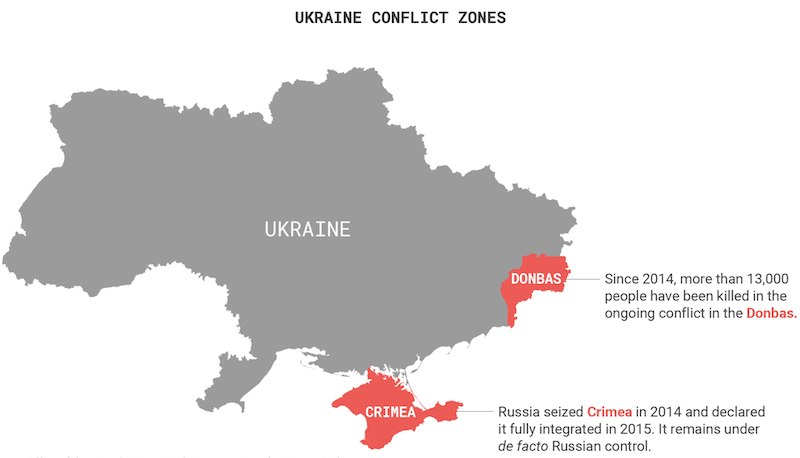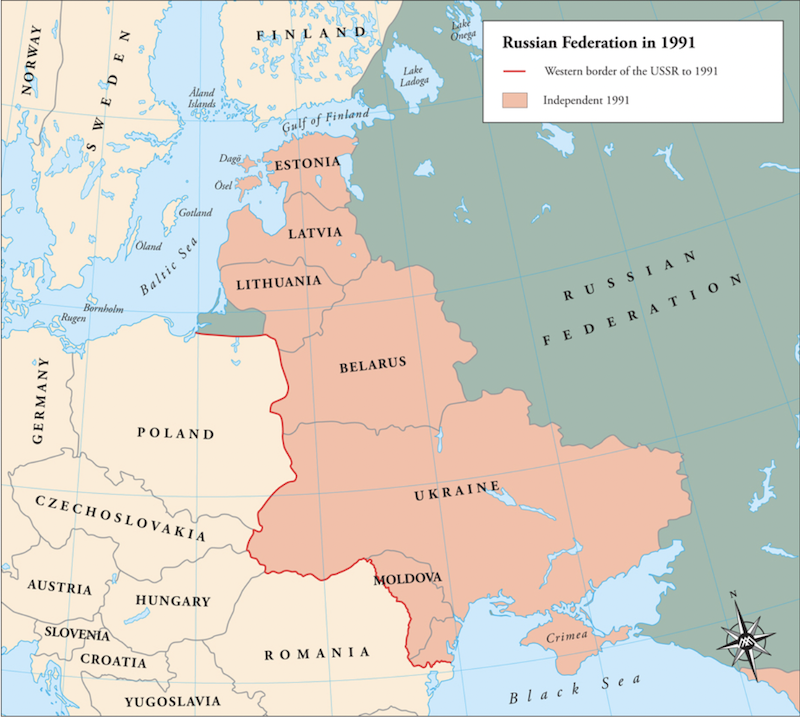What Russia’s invasion of Ukraine means for the US

As Russia’s full-scale war on Ukraine approaches the two-year mark, the West must remain focused on the larger implications that this war will have for the international community. Not only is Ukraine a democratic state with long-standing ambitions for further Western integration, it is also a committed partner to the United States. This war will have a lasting effect on international order for generations to come: If the sanctity of borders is no longer respected, that paves the way for future land grabs and violations of state sovereignty. What will prevent Russia from invading other democracies in Eastern Europe?
Spirit of America Stands by Ukraine, Then and Now
Spirit of America has been working with the US military and US Embassy to support Ukraine’s independence, freedom, and security since 2014. Since February 2022, Spirit of America has delivered over $55 million in nonlethal aid — over 1,000 tons — to Ukrainians on the front lines. From starting the ArmyFM program in 2015 – a radio station designed to counter Russian misinformation targeted at Ukrainian soldiers – to delivering frontline protective gear and funding programs like UActive or the TDF Captain’s Career Course, we have always stood with Ukraine.
In response to Russia’s attacks on Ukraine, Spirit of America has sought support from citizens like you to Help Ukraine Defend Freedom and Save Lives. We continue to work alongside our military and diplomatic partners to help the Ukrainian people stay safe, defend their homeland, and uphold the values of democracy, freedom, and human rights. We hope you will join us in our commitment to helping the people of Ukraine stay safe so they can live a free and better life.
Ukraine-Russia Conflict Background
Throughout history, imperialist Russian narratives and actions have attempted to deny, oppress, and extinguish the existence of Ukraine and its people. In 2014, Russian troops invaded Ukraine and illegally annexed Ukraine’s Crimean Peninsula. Since then, Russia has continued to behave as an aggressor state within Ukraine’s Eastern borders, making Ukraine more vulnerable to further annexation.
In 2021, noticing a lack of response from the international community following Russia’s 2014 annexation of Crimea and subsequent war in Eastern Ukraine for nearly a decade, Russian President Vladimir Putin began amassing additional military forces along the Ukrainian border, indicating that a full-scale invasion was imminent. With footholds in Belarus, Kazakhstan, and Georgia, and with the goals of growing a larger sphere of influence, many analysts view the Kremlin’s aggression toward Ukraine as the first step in restoring the Russian Federation to its former Soviet-era glory. Putin has previously stated that the collapse of the Soviet Union “was the greatest geopolitical catastrophe of the [21st] century.” Throughout the duration of the Soviet Union, millions of Ukrainians were systematically and repeatedly killed by Russian, Soviet leadership.
What does Russia’s large-scale invasion mean for the US? And what are the larger implications for the international order?
Implications for the US and the International Order
There are a number of things at stake with Russia’s further invasion of Ukraine: First and foremost, the sovereignty of our NATO, Baltic, and other Eastern European partners. Putin has long held aspirations to restore Russia to its pre-1991 borders. Russia’s war in Ukraine could be the first in a series of land grabs, and the sovereignty of other countries could be in jeopardy. In January 2024, amid worries over possible political fatigue among some of Ukraine’s Western allies, NATO issued a warning that the West should step up preparations for the unexpected — including a war with Russia — as Russia’s full-scale invasion of Ukraine approached the two-year mark. Should Putin achieve his goal, there would be a major shift in the global balance of power, posing an imminent threat to the US and its democratic values. If Putin were to invade NATO countries, NATO member states would be forced to retaliate in what could quickly become the next world war.
These land grab attempts have other implications for the international order: If Russia further invades Ukraine with minimal consequences, that sets a precedent for future violations of state sovereignty and the sanctity of borders. If the US and its friends and partners allow Russia to invade and ultimately annex a sovereign democracy with few consequences, what is to prevent other countries from doing the same? Will China feel free to tighten its grip on Taiwan — a burgeoning democracy that the US has a vested economic and diplomatic interest in? Will territorial borders no longer mean anything and we will revert to an age of expanding empires and spheres of influence?
Russia’s further invasion of Ukraine is not just an assault on Ukraine, but an assault on all democracies.
About the authors

Rachael Mohr was Digital Content Manager. Prior to working at Spirit of America, Rachael studied at Villanova University where she graduated cum laude with a double major in political science and history. Recently, Rachael completed a certification course in digital media marketing through Cornell University and earned a Digital Marketing Professional Certification through the Digital Marketing Institute.

Adriana Teluk joined Spirit of America in April 2022, directly supporting the Office of the CEO as Operations Coordinator. In October 2022, she joined the Development team as Donor Relations Asssociate. A multilingual communicator, Adriana is a long-standing, active member of the Ukrainian-American community in Washington D.C., with familial ties to Ukraine.






